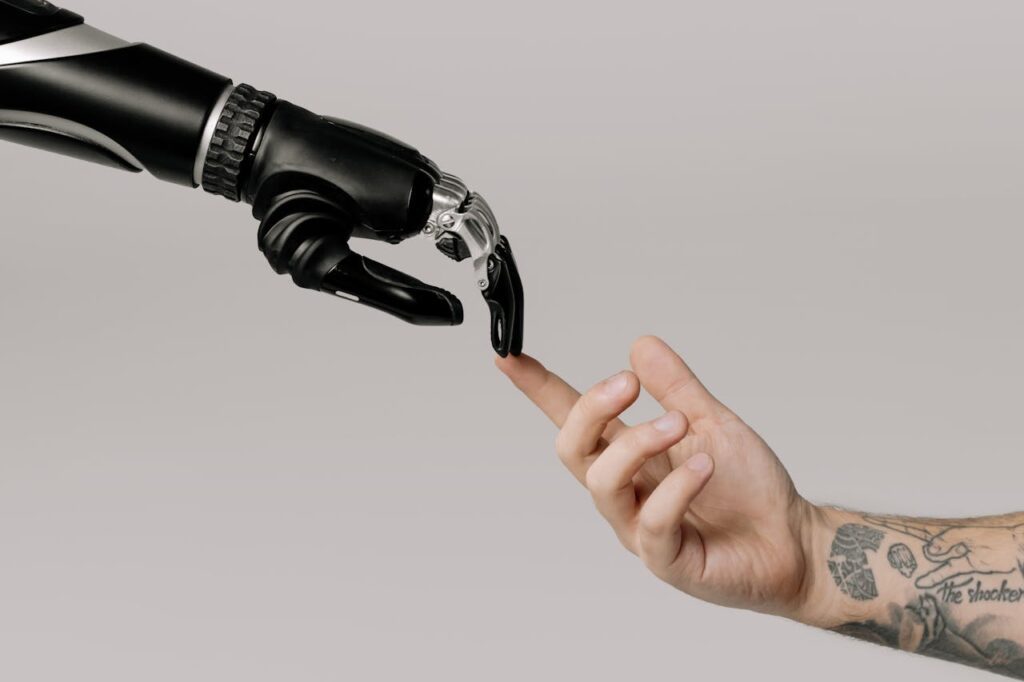Artificial Intelligence (AI) has become one of the most transformative forces in digital marketing, shaping how brands connect with consumers and creating opportunities for smarter, faster, and more effective campaigns. As AI technology continues to advance, it’s unlocking new potential across content creation, customer engagement, data analysis, and beyond. Here’s how AI is revolutionizing digital marketing and why it’s essential for businesses looking to stay competitive.
1. Enhanced Customer Insights through Data Analysis
- How it works: AI can analyze massive amounts of data in real-time, allowing marketers to gain deeper insights into consumer behavior, preferences, and trends. AI algorithms can track patterns and predict customer needs, which can then inform content and advertising strategies.
- Benefits: AI’s data analysis helps brands create hyper-personalized experiences, target their audience with precision, and improve overall campaign efficiency. It allows companies to react quickly to changing trends and customer preferences, keeping their strategies relevant and responsive.
2. Personalized Content and Recommendations
- How it works: AI-driven personalization uses data from customer interactions to offer relevant content, products, and recommendations. For instance, e-commerce websites use AI to display products that align with a shopper’s previous behaviors, while streaming platforms suggest shows based on viewing history.
- Benefits: This personalized approach increases engagement, improves user experience, and boosts conversion rates. Customers feel understood, which can lead to higher brand loyalty and repeat visits.
3. AI-Powered Chatbots and Customer Support
- How it works: AI chatbots can handle customer inquiries instantly and around the clock, providing quick responses and resolving common issues. Advanced chatbots can even simulate human-like conversations, making interactions feel more natural.
- Benefits: AI-powered chatbots streamline customer service, allowing businesses to serve customers without increasing staff. This improves response times, enhances customer satisfaction, and frees up human representatives to handle more complex requests.
4. Predictive Analytics for Better Decision-Making
- How it works: Predictive analytics, powered by AI, uses historical data to predict future outcomes, like customer behavior, purchase likelihood, or churn rate. By analyzing patterns, AI can identify which customers are likely to convert or engage, allowing marketers to focus on high-value leads.
- Benefits: Predictive analytics enable data-driven decisions, helping marketers optimize budgets, improve ad targeting, and forecast campaign success. This strategic approach makes digital marketing more efficient and ROI-focused.
5. Automated Content Creation
- How it works: AI-powered tools like GPT models can generate text for social media posts, blogs, product descriptions, and more. While it’s not a replacement for human creativity, AI-generated content can help businesses quickly create foundational content and ideas.
- Benefits: AI can significantly reduce the time and cost of content creation, particularly for repetitive or data-heavy content. Brands can maintain consistent communication with their audience while dedicating more resources to creating high-value, creative content.
6. Voice Search Optimization
- How it works: With the rise of voice-activated devices like Alexa, Siri, and Google Assistant, AI is transforming the way users search for information online. AI helps optimize content for voice search by understanding natural language patterns and delivering relevant results.
- Benefits: Voice search optimization allows brands to reach customers who use voice commands, which is growing in popularity. Adapting content to match natural language searches helps brands appear in voice results, improving visibility and accessibility.
7. Ad Targeting and Programmatic Advertising
- How it works: AI-driven programmatic advertising uses machine learning algorithms to automatically buy and place ads where they’re most likely to convert. AI considers factors like user behavior, time of day, and location to target ads with precision.
- Benefits: Programmatic advertising minimizes wasted ad spend and maximizes ROI by reaching the right audience at the right time. AI’s speed and accuracy allow brands to adapt in real-time, optimizing campaigns to yield the best possible results.
8. Visual Recognition for Image and Video Content
- How it works: AI-based visual recognition can analyze images and videos to recognize brand logos, products, or even sentiments expressed in visuals. This technology can help brands understand how their products are perceived and where they appear online.
- Benefits: Visual recognition allows brands to monitor brand sentiment, gather user-generated content, and identify influencers or partners. It enhances market research and helps ensure brand consistency across digital spaces.
Real-World Applications of AI in Digital Marketing
- Netflix uses AI to personalize recommendations based on users’ viewing history, keeping audiences engaged and increasing subscriptions.
- Coca-Cola employs AI-driven image recognition to monitor its logo’s appearance on social media, helping the brand understand how people are engaging with its products.
- Amazon uses AI to recommend products, suggest complementary items, and personalize email marketing, resulting in increased average order value and customer retention.
The Future of AI in Digital Marketing
AI in digital marketing is still evolving, and the future holds even more promising applications:
- Advanced Predictive Marketing could further refine targeted advertising by predicting what each user is likely to purchase next, making campaigns highly effective.
- Emotion Recognition in customer service chatbots may help bots respond empathetically, making interactions more personal and emotionally engaging.
- Augmented Reality (AR) and Virtual Reality (VR) experiences, powered by AI, may create immersive experiences for customers, particularly in retail, by allowing customers to “try” products online.
As AI continues to develop, its impact on digital marketing will only grow, enabling brands to connect with consumers in innovative and meaningful ways.



